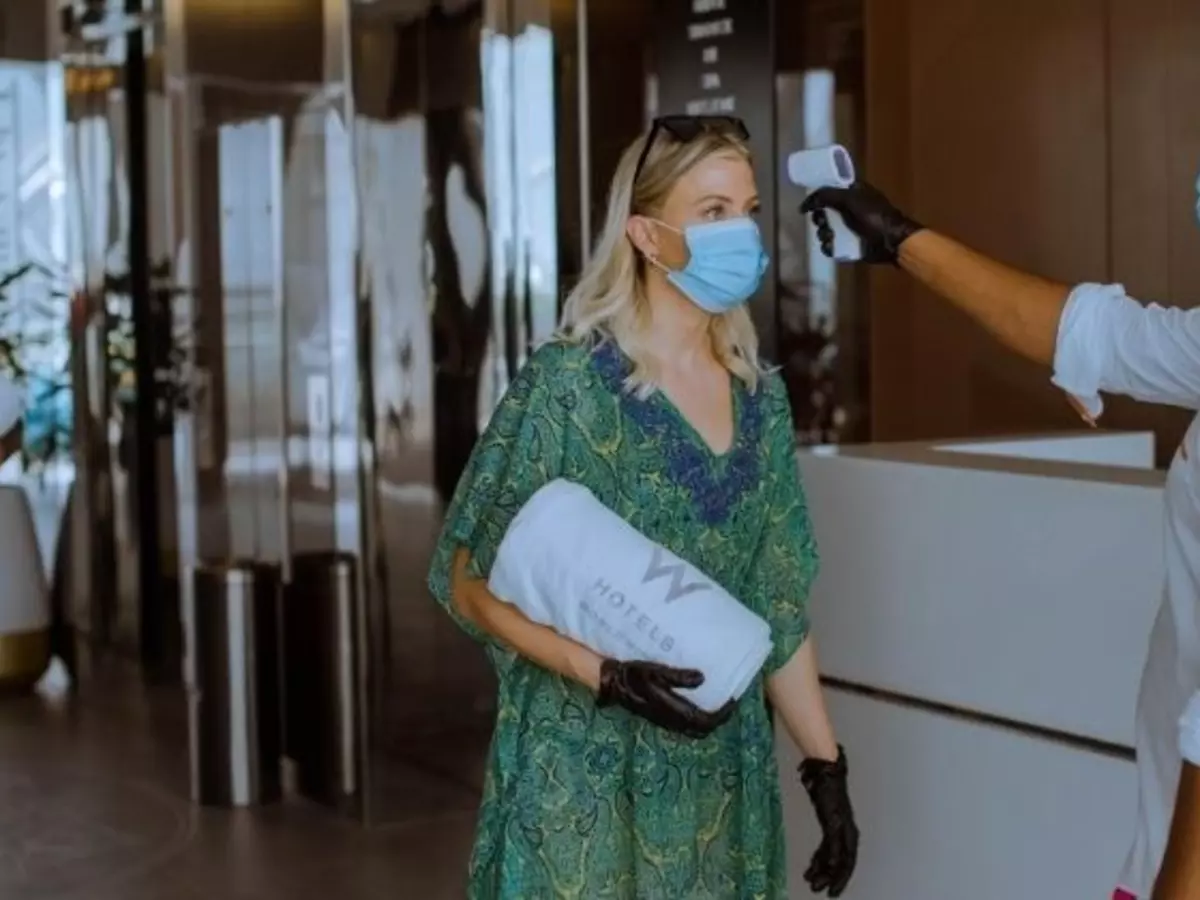Abu Dhabi Is Reopening For Tourists & Here¡¯s What We Know About Its Strict Go-Safe Health Guidelines
Abu Dhabi has introduced its Go Safe Certification programme endorsed by the Abu Dhabi Government. The programme is designed to implement cleanliness and hygiene standards across the emirate and minimise the spread of the COVID-19 virus in tourist premises. 146 Abu Dhabi hotels have obtained Go Safe certification with each of these sites tested across as many as 313 checkpoints.

The year 2020 has been a mix of scary, lacklustre and challenging, and if there¡¯s one thing we¡¯ve missed dearly, it¡¯s the joy of travelling! The bustle at the airport, exciting flights and creating trip itineraries ¨Cseems like forever ago, right? The good news is, life is steadily crawling back to normal and tourism is no exception.
One of the first cities to prioritise a safe welcome for international travellers is Abu Dhabi. The land of thousand-and-one Arabian nights, luxury skyscrapers, heart-warming hospitality and friendly people, isn¡¯t the capital on all of our bucket lists already? Well, its position might move up a notch when you read this - it¡¯s safer than ever to travel there, thanks to the UAE capital¡¯s introduction of its Go Safe Certification programme, endorsed by the Abu Dhabi Government. The programme is designed to implement cleanliness and hygiene standards across the emirate, and minimise the spread of the COVID-19 virus in tourist premises. So, what exactly does that mean for you?
It¡¯s Safer Than Ever To Travel To Abu Dhabi. Here¡¯s Why¡
We all know that the old way of travelling is long gone. With its recently implemented initiative, The Department of Culture and Tourism - Abu Dhabi (DCT) is making heightened standards of hygiene and cleanliness its top priority, so you can enjoy safe hotel stays and sightseeing.
 ? Department of Culture and Tourism - Abu Dhabi
? Department of Culture and Tourism - Abu Dhabi
Remember how, when you used to arrive at a hotel, you had to hand in your passport or ID? Not in Abu Dhabi anymore. Checking into a hotel in the UAE capital sees limited contact with staff, with guests enjoying assisted check-in using state-of-the-art technology and distanced assistance. So no one touches your stuff, and you don¡¯t have to make contact with anyone else either. Meals are a similar deal. Instead of buffets for breakfast, you¡¯ll now have food served to your table, eliminating the need for unnecessary contact. Swimming pools and other public areas are sanitised and monitored, only allowing a certain number of people in at a time, and for a set length.
 ? Department of Culture and Tourism - Abu Dhabi
? Department of Culture and Tourism - Abu Dhabi
Since the initiative¡¯s launch in June 2020, 146 Abu Dhabi hotels have obtained Go Safe certification, with each of these sites tested across as many as 313 checkpoints, including social distancing courses; temperature screenings; regular disinfection of all operational areas; COVID-19 testing for employees, among others.
Some headline hotels accredited as part of the initiative include the W Hotel ¨C Yas Island, Emirates Palace and St. Regis Abu Dhabi. These properties join key tourism sites, including Yas Island¡¯s adrenaline-inducing theme parks, Qasr Al Hosn, the oldest standing structure in Abu Dhabi, and the iconic Cultural Foundation. Malls, beaches, restaurants and other public places can also opt for Go Safe certification, with the UAE capital aiming to have the entire city Go Safe certified by the end of August.
Abu Dhabi Promises Hustle and Hygiene
 ? Department of Culture and Tourism - Abu Dhabi
? Department of Culture and Tourism - Abu Dhabi
In the pre-COVID world, printed guides and touchscreens were a regular part of the scene, but no
more. The UAE capital has upped the travel game, with visitors to tourist sites
now given no-touch digital guides instead of printed versions, with all
touch-screen facilities discontinued. Sterilisers and thermal detection
services continue to play an important role in the new normal, with social
distancing complementing these measures.
Cultural landmark Louvre Abu Dhabi is also Go Safe accredited. Following the above guidelines, it was the first destination to reopen in Abu Dhabi, bouncing to new normalcy in June 2020. Other cultural sites that bagged the Go Safe stamp and started following new guidelines early on include Al Ain Palace Museum, Al Jahili Fort, Qasr Al Muwaiji and Al Ain Oasis.
 ? Department of Culture and Tourism - Abu Dhabi
? Department of Culture and Tourism - Abu Dhabi
But what about the crowd at these popular tourist sites, you ask? Not to worry. Each cultural venue hosts 40 per cent of its total capacity at any given time, allowing visitors to spend a maximum of three hours at the site. So, you¡¯ll always have more than enough space between you and other visitors.
With well-planned safety measures executed to a T, Abu Dhabi is certainly a city worth considering when you can next fly out for a holiday.
For more details about Abu Dhabi¡¯s health and safety guidelines, visit the official website.
